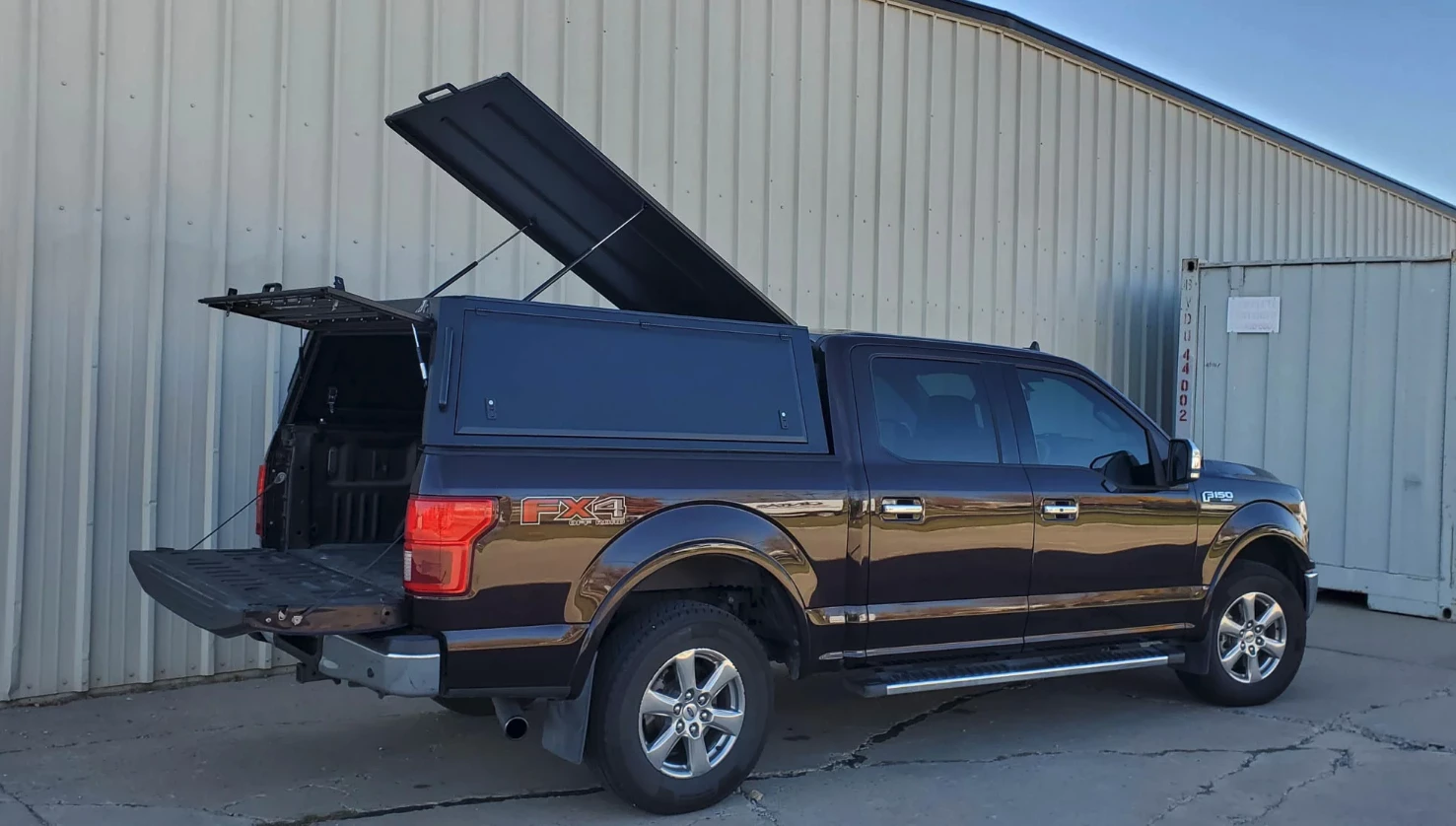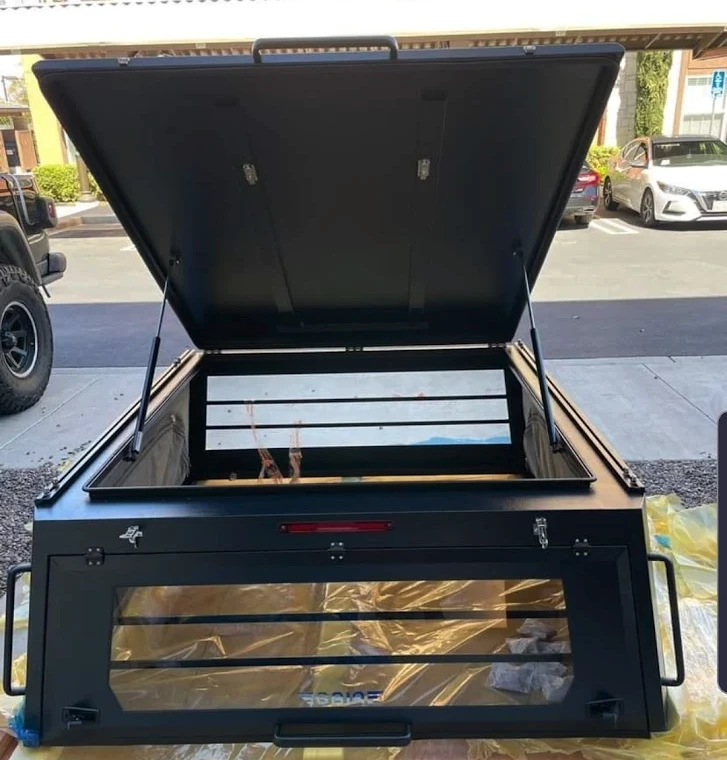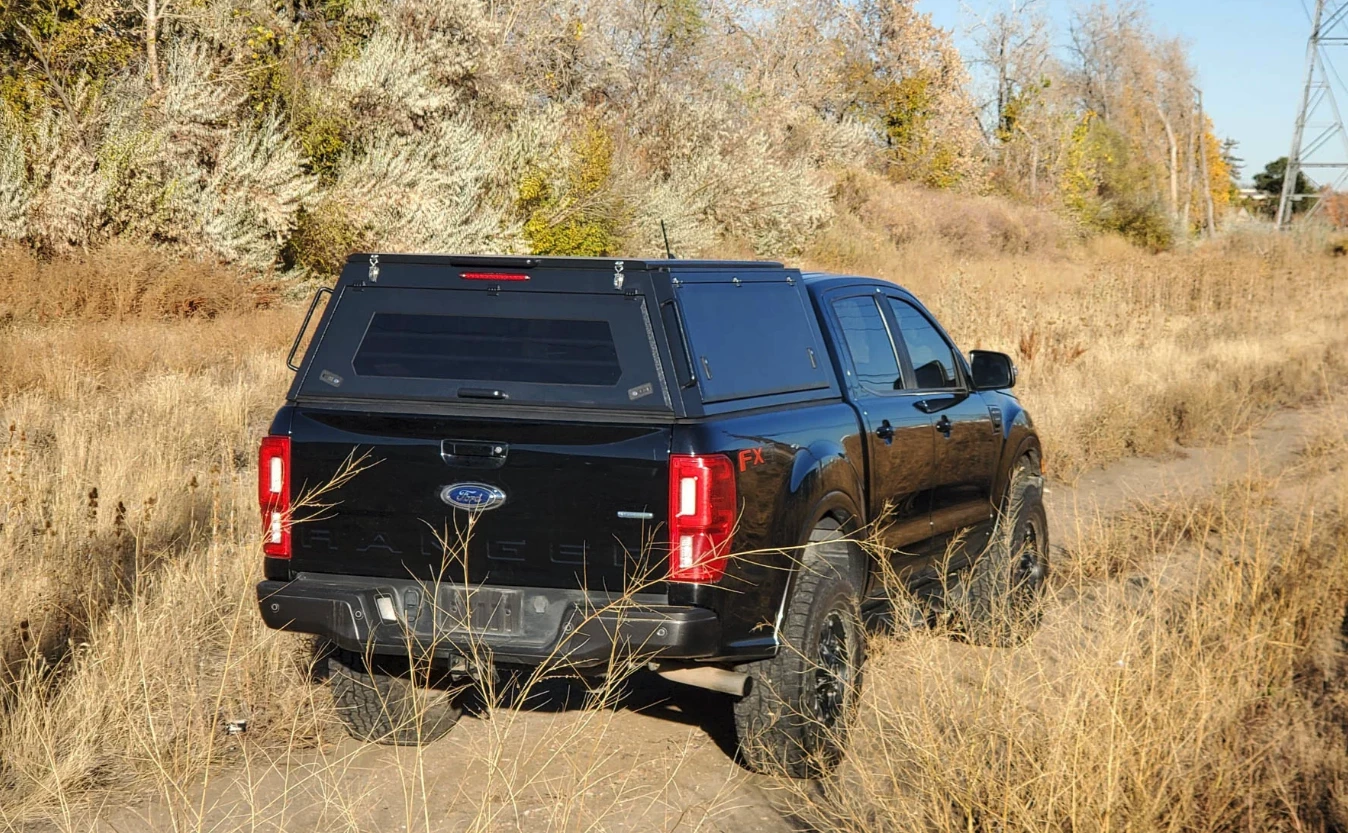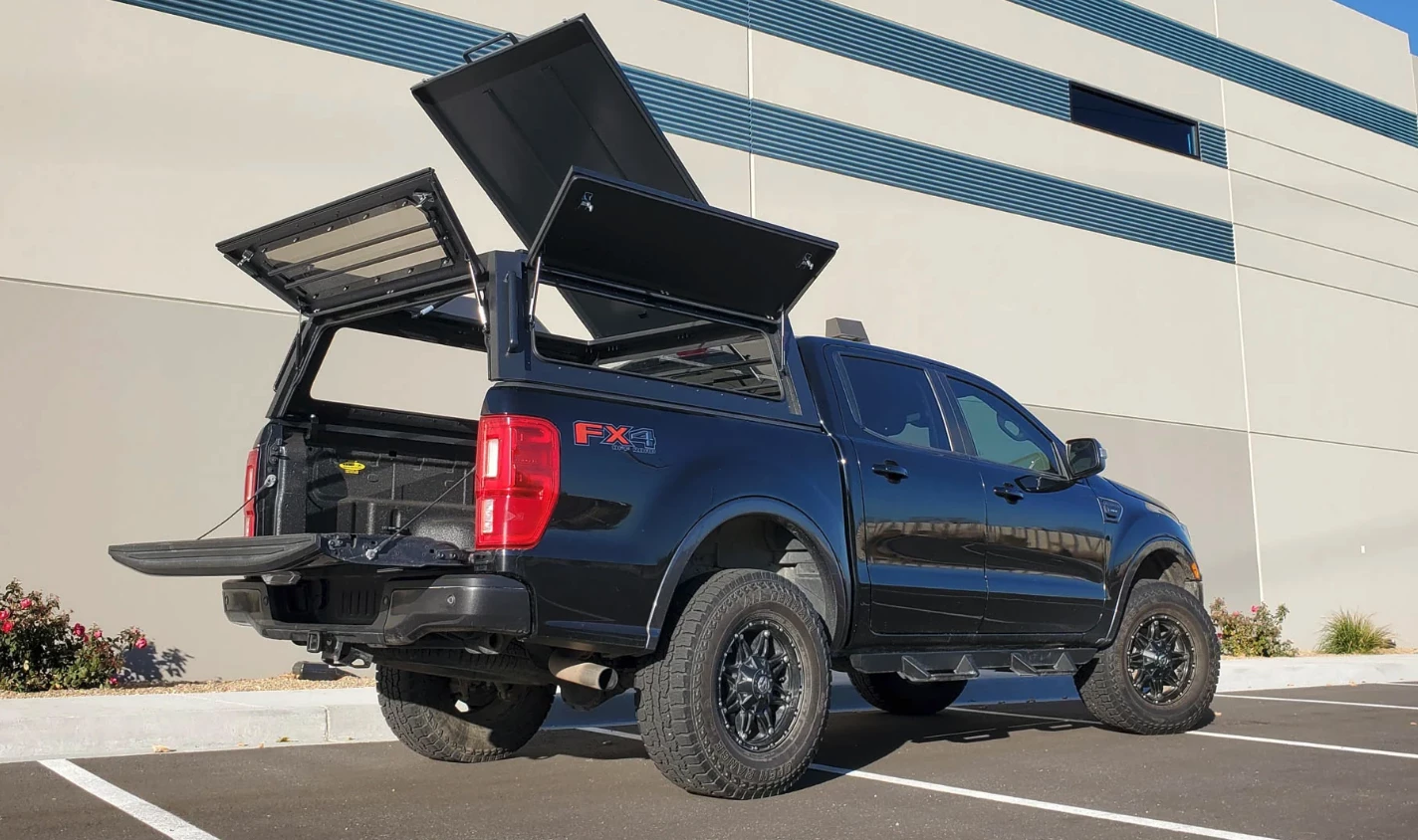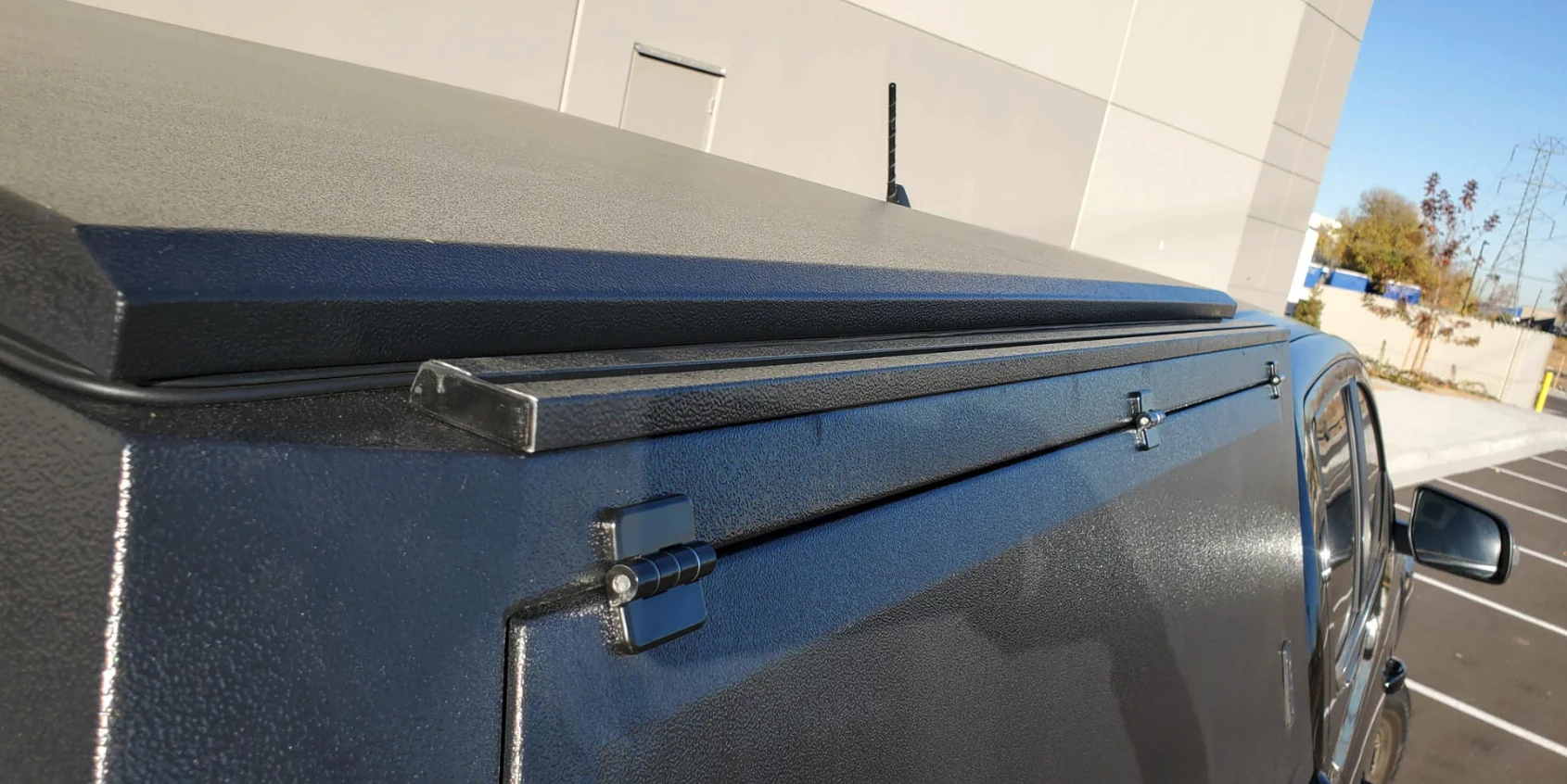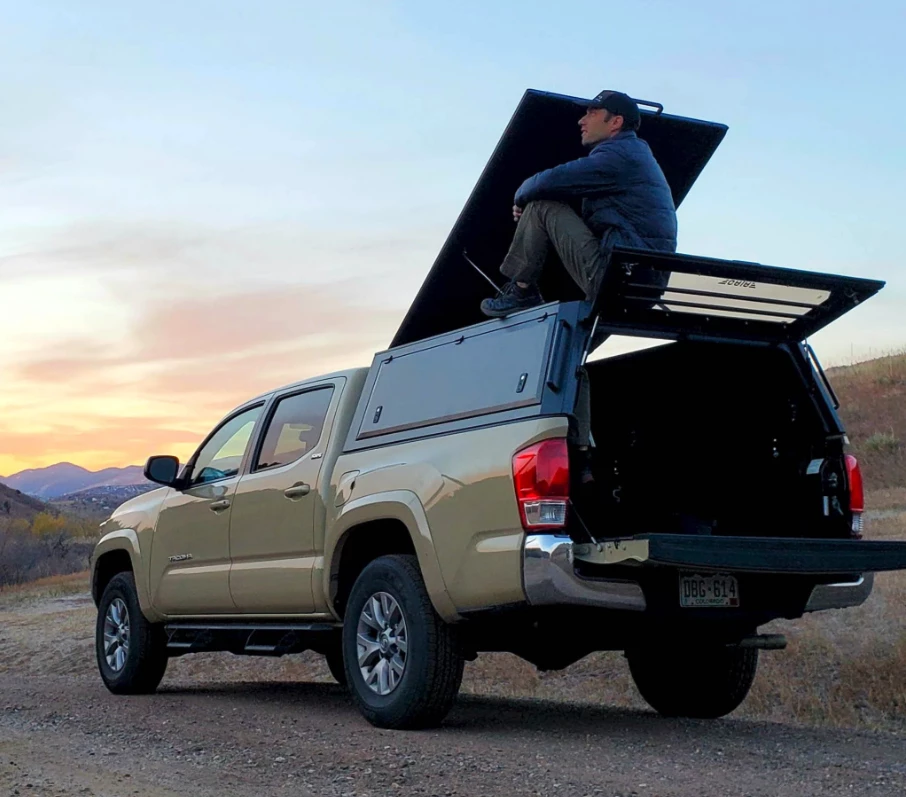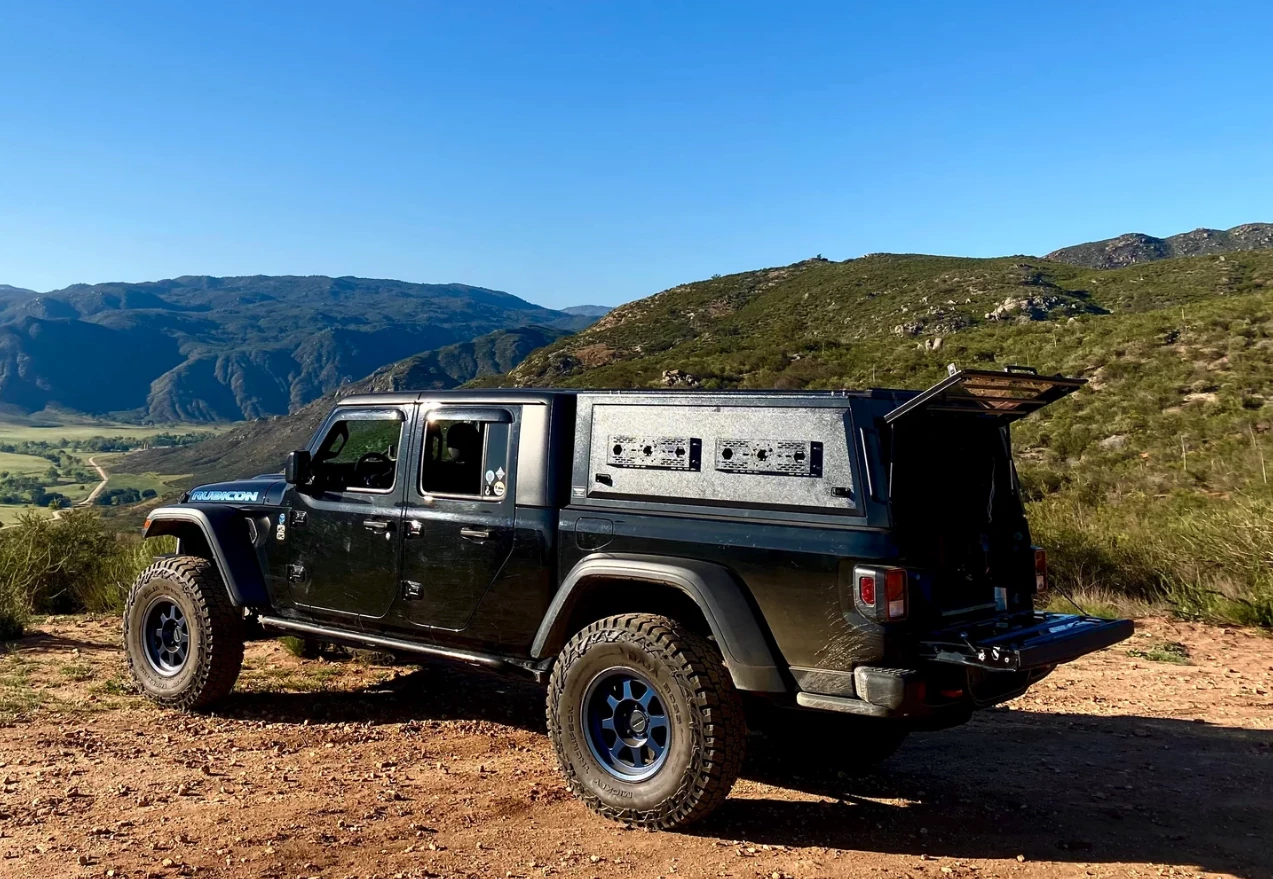To cap or not to cap – it's a question that virtually every pickup truck owner has asked at some point, and there's no right answer. A cap over the bed offers locked, weatherproof security you simply can't get with an open bed. But it limits what you can haul, preventing certain tall and oversized items from fitting like they would in an open bed. South Korean company Gaia helps solve the dilemma by putting a pop-up wedge roof on its cap, allowing users to create extra room for oversized cargo while still enjoying all the other benefits of a hard cap. It could prove the best of both worlds.
Located in Hanam-Si, South Korea, Gaia Co was founded in 2010 as a vehicle camping brand. It offers an extensive lineup of overland gear, ranging from campers and rooftop tents to aftermarket 4x4 upgrades.
After more than a decade of experience in South Korea, Gaia expanded into the US market in 2022 with a Jeep Gladiator canopy camper similar in design to camping toppers like the Go Fast Camper or DOT Alpaca. While its canopy looks like a worthy competitor in its own right, its second US product really caught our attention.
Simply named the Cap, Gaia's take on a basic pickup shell features powder-coated welded steel construction, a burlier alternative to the fiberglass and aluminum constructions common on other caps. When all closed up, it looks like a rugged but otherwise unassuming aftermarket roof cap, sitting close to cab roof height and offering a rear window and gullwing hatches on the sides.
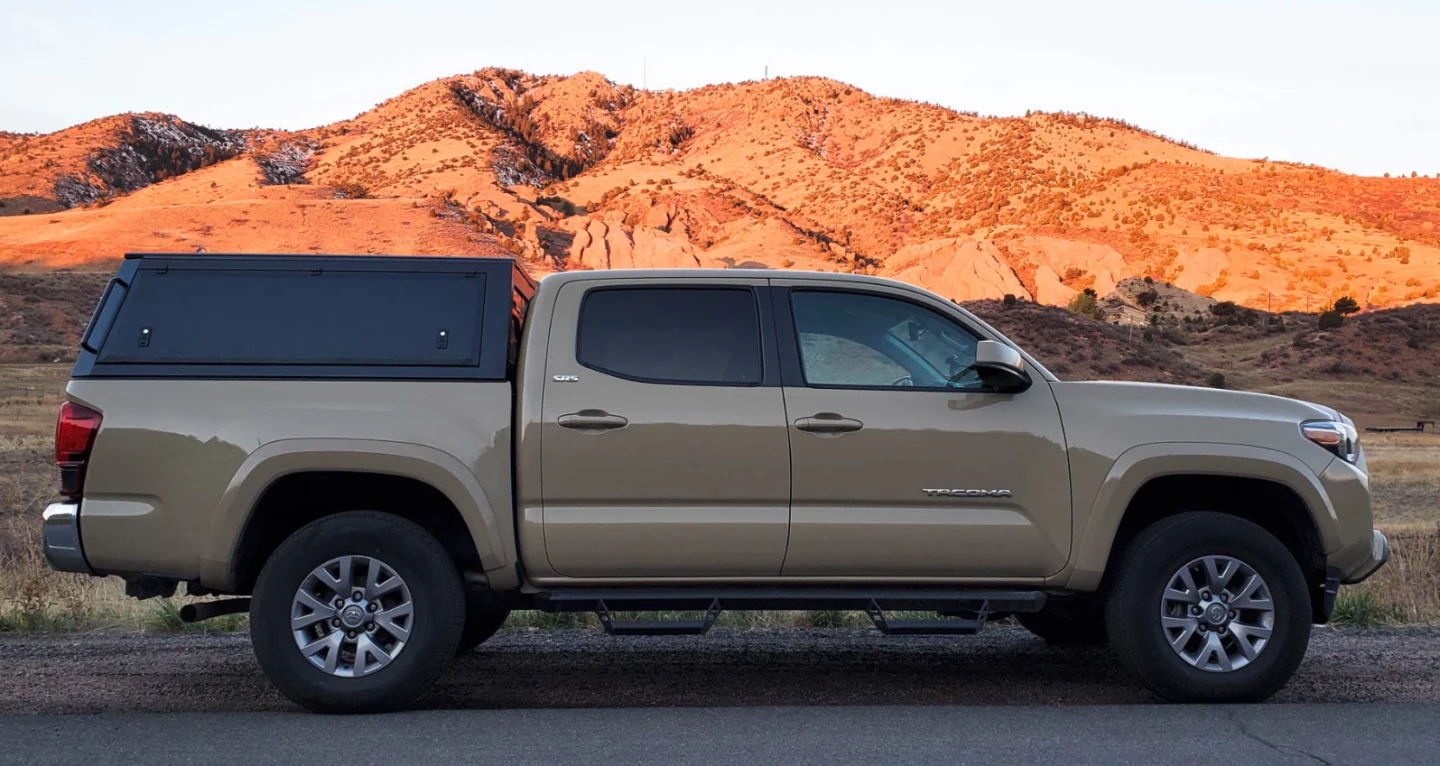
The big difference can be found at the roof, which utilizes a pop-up camper-style gas strut system to tilt forward. As a camping company, Gaia focuses largely on the design's advantages for overnighting, positioning it as a sort of cheaper alternative to a full-blown pop-up topper that allows campers to stand up in the truck bed during the day, then drop the roof down for a fully enclosed, protected night of sleep. However, the design has even more potential for everyday use, allowing owners to transport tall items that wouldn't otherwise fit properly under the cap roof – potted trees kept upright, tall furniture, paddleboards, etc.

The Gaia Cap doesn't solve all oversized loading dilemmas since the upper rear frame beam remains in place, possibly interfering with loading tall, wide items into the bed, and the sloped roof might still get in the way. Also, we're not sure how far you'd want to drive with that wedge roof open. Still, it adds some versatility you don't get with a traditional truck cap and seems like a handy way of splitting the difference between an open bed and fixed cap, without having to regularly remove and reinstall the cap.
Other Gaia Cap standard features include T-slot track along the roof edges for mounting cross bars and other accessories, protective internal bars across the front and rear windows, keyed locking latches on the rear door and side hatches, an interior LED strip and a third brake light. The company also offers accessories such as side mounting panels, a stainless steel folding coffee table that mounts on the underside of the roof, and camping side hatch inserts with mesh, canvas and clear vinyl layers.
The Cap comes specced with a dynamic load rating of 200 lb (91 kg) and a static load rating of 700 lb (318 kg), making it readily compatible with all kinds of rooftop tents and carry solutions. Cap base weights range between roughly 210 and 250 lb (95 and 113 kg), depending upon truck model.

Since launching last summer, Denver-based Gaia USA has been growing its lineup to include compatibility with popular US truck models. The Cap is now available for a variety of midsize trucks, including the Jeep Gladiator, Toyota Tacoma, Ford Ranger and Chevy Colorado. The F-150 is the only full-size truck represented for now, but Gaia has plans to add variants for additional trucks, including the Chevy Silverado, Ram 1500, Toyota Tundra and Nissan Titan. It has also developed Caps for the Honda Ridgeline and Ford Maverick small trucks. Base prices range between $3,999 and $4,399, depending on truck make/model. Gaia manufactures the caps in South Korea.
Source: Gaia

